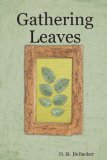 William de Eyton
William de Eyton
M, #167, (b 1216-bt 1251 - 1255)
William de Eyton|b. b 1216\nd. bt 1251 - 1255|p167.htm|Sir Peter II de Eyton|b. b 1186\nd. bt 1237 - 1240|p171.htm|Alice||p118.htm|Peter I. de Eyton|b. b 1160\nd. bt 1207 - 1212|p174.htm||||||||||
Relationship=18th great-grandfather of Cordelia Pickering.
Last Edited=7 Jun 2008
�����William de Eyton was born before 1216. He was the son of Sir Peter II de Eyton and Alice. He married Matilda in 1216 in Dover, Kent, England. He died between 1251 and 1255.
�����
�����
William de Eyton, whom the Feodaries of 1240 enter as holding one fee in Eyton, and one fee in Kereswall (Cresswell),3 of the Barony of Wem. Though so great a Feoffee, it does not appear that this William ever obtained the honour of knighthood. We have had double proof that in November 1240 he had married an heiress or coheiress, Matilda by name.1 Her interest at Leonards- Lee seems to have been in partr sold, while that at Rochull (near Wall-Town) was established against certain disputants. It is probable that William de Eyton was for a time cotemporary with his Uncle of the same name, and it is certain that a third William de Eyton was resident near the Wrekin about this period. I can hardly distinguish the Lord of Eyton and these cotempora- ries, by their position in certain testing-clauses and jury-lists. Between the years 1242 and 1248 William de Etton was the third of twelve Recognizors who attended the Sheriff, Forester, and Verderers of Shropshire to decide what were the Abbot of Lilles- hall's rights in a question of forest-law. In 1248 William de Etun was fourth juror on a Withyford Inquest. Again William de Eton was Foreman of the Jury which about February 1249 attended at Shrewsbury to make Inquest as to the estate of Hugh Fitz Robert, late Forester of Shropshire. This William I take to have been surely the individual now under notice. As William de Ethon he again sat Foreman of a Jury which on January 30, 1251, decided a dispute between the Abbeys of Buildwas and Lilleshall. In 1255 he was deceased, his widow Matilda surviving him, but his son and heir, Peter, being an infant, probably under ten years of age. Hence the Bradford Hundred-Roll of 1255 says as follows.—" Peter de Eiton is Lord of Eiton and is in ward to Peter Peverel by gift of Ralph le Butiler (then Baron of Wem). And he (Peter de Eiton) holds the said Manor by service of one knight at Wemme, in time of war, for 40 days, at his own charges. And the Manor used to do suit to County and Hundred, but it has been withdrawn these ten years; and the said suit is worth 2s yearly. Matilda, widow of William de Eyton, remarried to Walter de Pedwardine and took with her in dower one-third of two parts of the estate of Eyton. The remaining part had never come to William de Eyton's hands, for it was held at the time of his death by his mother Alice, who survived him. Alice however died before 1256, and at the Assizes of January in that year a curious point in the Law of Dower had its solution. Walter de Pedwardine and Matilda his wife, having already one-third of two-thirds of two carucates in Eyton in Wydemore as Matilda's dower, sued Peter Peverel and Ralph de Kent for a third of that remaining third which had now lapsed to the general estate by death of Alice. The Plaintiffs asserted that William de Eyton had given dower to Matilda out of this remaining third. This the Defendants denied, saying that William had never been seized of the said third except in tenancy and during the period between his father Peter's death and the allotment of the said third as his mother's dower. The facts were not in dispute. They were, that Peter de Eyton died seized of the whole estate, that William his son and heir instantly afterwards gave one third to his mother Alice in dower, and had never been otherwise in seizin of such third;—obviously because his mother survived him. The question was one of law, viz. whether Walter de Pedwardine and Matilda could demand dower out of dower, i.e. take thirds in such part of William de Eyton's estate as had reverted since his death ? The Court decided in the negative, dismissed Peverel and Kent sine die, and pronounced the Plaintiffs in misericordid for a false claim.1
Child of William de Eyton and Matilda
 Sir Peter III de Eyton+ (b 1246 - a 1292)
Sir Peter III de Eyton+ (b 1246 - a 1292)
Citations
- [S33] Rev. Robert Eyton Antiquties of Shropshire, pgs 30-32.
Close
�